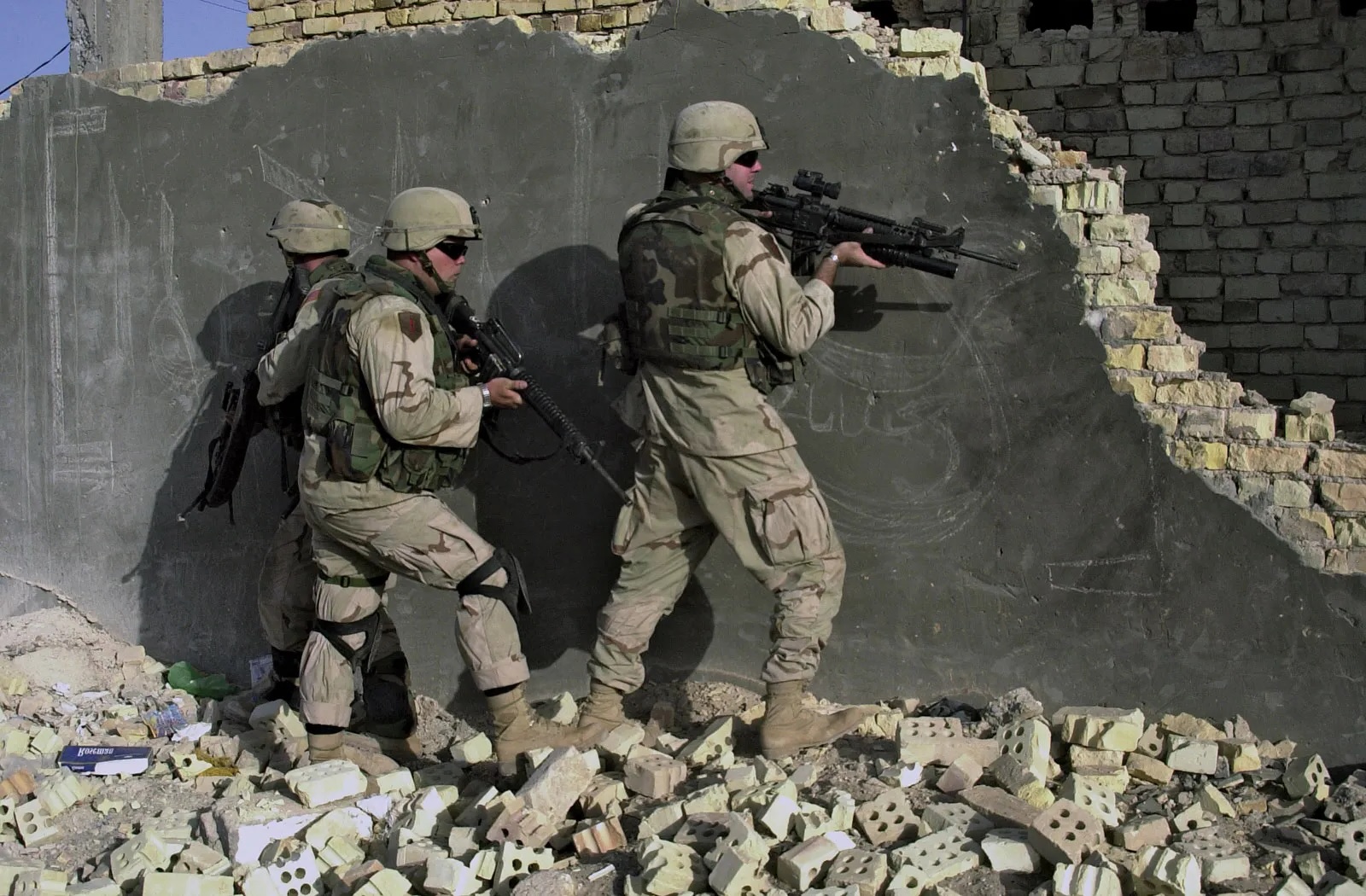
Why did the Iraq War happen? The Iraq War, also known as the Second Gulf War, began in 2003. The primary reason was the belief that Iraq possessed weapons of mass destruction (WMDs). The U.S. government, under President George W. Bush, argued that these WMDs posed a significant threat. Another reason was the desire to remove Saddam Hussein from power, as he was seen as a brutal dictator. Additionally, there were concerns about Iraq's alleged support for terrorist groups. Despite these reasons, no WMDs were found, leading to much debate and controversy. Understanding these factors helps explain why the Iraq War remains a significant event in modern history.
The Beginning of the Iraq War
The Iraq War, also known as the Second Gulf War, began in 2003. This conflict had significant global implications and left a lasting impact on the Middle East.
- The Iraq War started on March 20, 2003, with a coalition led by the United States and the United Kingdom.
- The primary reason for the invasion was the belief that Iraq possessed weapons of mass destruction (WMDs), which were never found.
- The war aimed to topple the regime of Iraqi President Saddam Hussein, who had been in power since 1979.
Key Players and Alliances
Several countries played crucial roles in the Iraq War, forming alliances and coalitions to achieve their objectives.
- The coalition included countries like Australia, Poland, and Spain, alongside the US and UK.
- NATO did not officially support the invasion, leading to divisions among member countries.
- Iraq's military was significantly weakened due to sanctions and previous conflicts, making the invasion relatively swift.
Major Battles and Operations
The Iraq War saw numerous significant battles and military operations that shaped its course.
- Operation Iraqi Freedom was the code name for the invasion phase of the war.
- The Battle of Baghdad in April 2003 led to the fall of the Iraqi capital and the collapse of Saddam Hussein's regime.
- The insurgency phase began shortly after the fall of Baghdad, with various groups fighting against coalition forces.
Humanitarian Impact
The war had profound humanitarian consequences, affecting millions of Iraqis and leading to widespread suffering.
- An estimated 100,000 to 600,000 Iraqi civilians died as a result of the conflict.
- Millions of Iraqis were displaced internally or became refugees in neighboring countries.
- The war severely damaged Iraq's infrastructure, including hospitals, schools, and utilities.
Political and Social Changes
The Iraq War brought about significant political and social changes within Iraq and the broader region.
- Saddam Hussein was captured in December 2003 and executed in December 2006 after being found guilty of crimes against humanity.
- The war led to the establishment of a new Iraqi government, with the first democratic elections held in January 2005.
- Sectarian violence between Sunni and Shia Muslims increased dramatically, leading to further instability.
Economic Consequences
The conflict had far-reaching economic consequences for Iraq and the countries involved.
- The war cost the United States over $2 trillion, including long-term care for veterans.
- Iraq's oil production was severely disrupted, impacting global oil prices.
- Reconstruction efforts in Iraq faced numerous challenges, including corruption and ongoing violence.
The Role of Media
Media coverage of the Iraq War played a crucial role in shaping public perception and understanding of the conflict.
- Embedded journalism allowed reporters to accompany military units, providing real-time coverage of the war.
- The war saw the rise of alternative media sources and blogs, offering different perspectives from mainstream outlets.
- Controversial images and videos, such as those from Abu Ghraib prison, sparked global outrage and debates about the conduct of coalition forces.
Long-term Effects and Legacy
The Iraq War's legacy continues to influence global politics and the Middle East's stability.
- The power vacuum left by Saddam Hussein's fall contributed to the rise of extremist groups like ISIS.
- The war's aftermath led to ongoing debates about the justification and consequences of military intervention.
Reflecting on the Iraq War
The Iraq War, a significant chapter in modern history, left a lasting impact on global politics, economics, and society. Understanding its complexities helps us appreciate the sacrifices made and the lessons learned. From the initial invasion to the long-term consequences, every aspect of this conflict offers valuable insights into international relations and military strategy.
The war reshaped the Middle East, influencing regional dynamics and global perceptions. It also highlighted the importance of accurate intelligence, the challenges of nation-building, and the human cost of conflict. By examining these facts, we gain a deeper understanding of the war's far-reaching effects.
Remembering the Iraq War isn't just about recalling dates and events. It's about honoring those who served, understanding the geopolitical shifts, and recognizing the ongoing impact on millions of lives. Let's continue to learn from history to build a more informed and peaceful future.
Was this page helpful?
Our commitment to delivering trustworthy and engaging content is at the heart of what we do. Each fact on our site is contributed by real users like you, bringing a wealth of diverse insights and information. To ensure the highest standards of accuracy and reliability, our dedicated editors meticulously review each submission. This process guarantees that the facts we share are not only fascinating but also credible. Trust in our commitment to quality and authenticity as you explore and learn with us.


